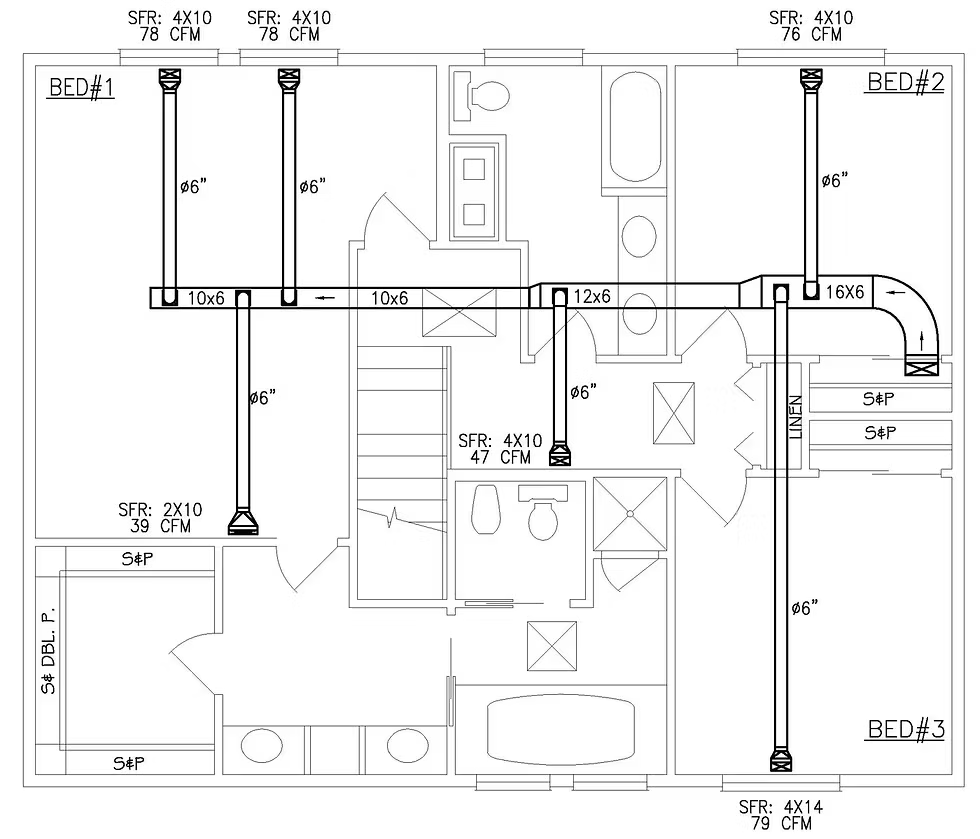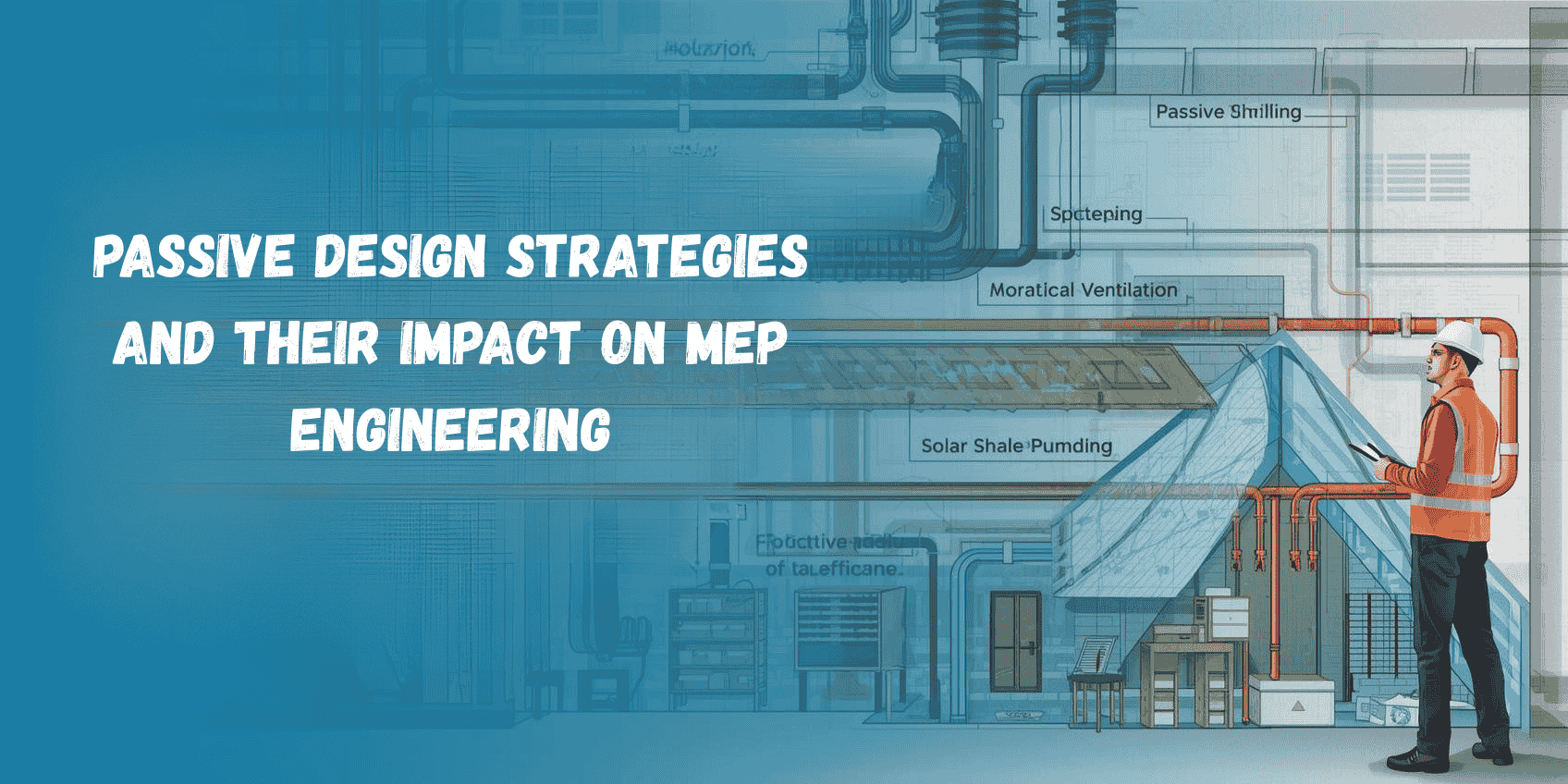
MEP engineers are essential in modern construction, overseeing systems that ensure buildings operate safely and efficiently. Understanding what MEP is in construction highlights how these professionals integrate mechanical, electrical, and plumbing systems into cohesive designs, balancing functionality with compliance. In the USA, the average MEP Engineer salary is around $101,752 per year, reflecting the expertise and responsibilities involved.
Aspiring engineers can strengthen their knowledge through a structured MEP course online with certificate, which provides practical skills, technical understanding, and industry insights. This foundation helps professionals explore career paths, certifications, and growth opportunities, setting the stage for advancement in a specialized and in-demand engineering field.
What Does an MEP Engineer Do and Why Is This Role Important?
MEP engineers coordinate complex building systems to ensure efficiency, safety, and compliance throughout a project. Their work involves designing, planning, and integrating mechanical, electrical, and plumbing components to meet technical specifications and client requirements. The duties of an MEP engineer include system analysis, drafting layouts, and collaborating with architects and contractors for seamless project execution.
Beyond technical work, MEP engineers play a strategic role in construction, influencing energy efficiency, operational reliability, and long-term maintenance. They help optimize building performance while adhering to regulations and standards. The roles of a MEP engineer in construction extend from conceptual design to commissioning, making their expertise critical in delivering functional, safe, and sustainable structures.
What Skills, Qualifications, and Certifications Are Needed to Become an MEP Engineer?

A career in MEP engineering requires a solid grasp of technical concepts, analytical thinking, and effective collaboration. Reviewing the MEP engineer job description provides insight into the overall responsibilities and expectations, helping individuals understand the general expertise and approach needed to work successfully within complex construction environments.
Essential Skills for MEP Engineers
-
Analytical Thinking: Evaluate complex building systems to identify efficient, practical solutions and prevent potential design conflicts.
-
Technical Knowledge: Apply engineering principles to integrate mechanical, electrical, and plumbing systems accurately within construction projects.
-
Team Collaboration: Coordinate effectively with architects, contractors, and project teams to ensure smooth execution of plans.
-
Project Management: Organize, schedule, and oversee tasks to meet project deadlines while maintaining high-quality standards.
-
Attention to Detail: Understanding MEP workflow in construction helps engineers ensure all systems function correctly and cohesively.
Required Qualifications and Training
-
Engineering Degree: Complete a degree in mechanical, electrical, or civil engineering to establish foundational knowledge.
-
Professional Certifications: Obtain recognized credentials validating expertise and adherence to industry standards for engineering projects.
-
Hands-on Internships: Gain practical exposure to real-world MEP projects to strengthen technical and collaborative skills.
-
Workshops and Seminars: Attend sessions to stay updated on modern tools, methods, and best engineering practices.
-
Software Proficiency: Master design, drafting, and simulation tools, including MEP engineer skills and training, for project efficiency.
Advanced Certifications for MEP Engineers
-
BIM for MEP Engineers: A structured program enhancing technical expertise in design, modeling, and integrated building systems.
-
BIM Integration Certification: Learn to use Building Information Modeling for precise coordination and efficient MEP system design.
-
Energy Efficiency Training: Study sustainable building practices to enhance performance while complying with modern construction standards.
-
Project Coordination Certification: Develop skills to manage complex construction projects, ensuring timelines, quality, and compliance are maintained.
Also Read: Top 50 MEP Interview Questions & Answers 2026
Which Career Paths, Industries, and Growth Opportunities Are Available for MEP Engineers?

MEP engineers have a wide range of opportunities across construction and building services. Exploring an MEP engineer career path helps professionals understand potential roles, industries, and ways to advance in this specialized field, providing clarity for skill development and long-term growth.
Career Paths for MEP Engineers
-
Design Engineer: Plan and create mechanical, electrical, and plumbing systems for construction projects efficiently.
-
Project Coordinator: Oversee project schedules and integration, ensuring smooth collaboration across teams and disciplines.
-
Consultant: Offer expert advice on system performance, compliance, and technical improvements for building projects.
Industries Employing MEP Engineers
-
Commercial Construction: Work on office buildings, shopping centers, and mixed-use developments requiring integrated systems.
-
Residential Projects: Contribute to high-rise apartments, housing complexes, and residential communities with safe, functional designs.
-
Industrial Facilities: Design and maintain MEP systems for factories, warehouses, and large-scale manufacturing units.
Growth and Advancement Opportunities
-
Specialization: Focus on advanced systems or sustainability practices, leveraging MEP career guidance for technical expertise.
-
Leadership Roles: Lead project teams or departments, managing complex engineering workflows efficiently.
-
Technical Consulting: Provide advisory services for innovative projects, ensuring system optimization and compliance.
Also Read: Revit Software For MEP: Training, Certification & Benefits
How Can Professionals Start Their Journey and Advance in MEP Engineering?

Professionals can begin their journey by building technical knowledge, gaining practical experience, and understanding industry standards. Structured programs like the Revit BIM Course for MEP Engineers provide exposure to integrated design practices, modeling techniques, and system coordination, helping learners prepare for complex projects. Such preparation enhances eligibility for MEP jobs while developing problem-solving, collaboration, and planning skills essential for career growth in the field.
Key Advantages of Novatr’s Learning Approach:
-
Offers a comprehensive curriculum covering integrated mechanical, electrical, and plumbing system modeling for practical understanding.
-
Provides hands-on exercises that simulate real-world MEP design and coordination scenarios to strengthen applied skills.
-
Enables flexible access to online BIM MEP training in the USA, allowing professionals to learn according to their schedules.
-
Focuses on industry-relevant tools and techniques used in modern construction and building projects.
-
Includes mentorship and structured guidance to develop critical thinking and advanced technical competencies in MEP engineering.
-
Encourages collaborative learning and problem-solving, enabling engineers to effectively manage integrated MEP projects in real-world scenarios.
Conclusion
MEP engineers ensure that mechanical, electrical, and plumbing systems work together efficiently, supporting both building functionality and compliance. Their role demands technical expertise, careful planning, and collaboration across multiple teams, allowing projects to run smoothly while addressing complex construction challenges. Gaining knowledge of integrated workflows and system coordination is key to advancing in this specialized field.
Programs like the BIM Course for MEP Engineers at Novatr provide hands-on experience and practical modeling skills that prepare professionals for real-world challenges. For additional insights and learning resources, visiting our resource page helps engineers build expertise, explore career paths, and develop the skills necessary for successful MEP jobs, ensuring steady professional growth.
Also Read: How Project-Based Learning Helps You Build a Strong Portfolio for MEP Engineers
FAQs
1. What does MEP stand for in engineering?
MEP stands for Mechanical, Electrical, and Plumbing, which are the fundamental systems integrated into any building project. These systems ensure proper functionality, safety, and efficiency, requiring careful planning and coordination. Understanding MEP is critical for engineers to deliver fully operational and compliant buildings.
2. What are the main duties of an MEP engineer?
An MEP engineer is responsible for designing, planning, and coordinating mechanical, electrical, and plumbing systems within a project. They collaborate with architects, contractors, and project teams to ensure all components meet technical standards and comply with building regulations. Their work also includes system analysis, troubleshooting, and optimizing overall building performance.
3. What certifications can boost an MEP engineer’s career?
Certifications such as BIM Integration, Project Coordination, Energy Efficiency, and the BIM Professional Program for MEP Engineers help enhance technical expertise. These credentials prepare professionals for complex projects, improve system design skills, and expand opportunities in advanced roles or specialized MEP jobs.
Was this content helpful to you



.jpg)



